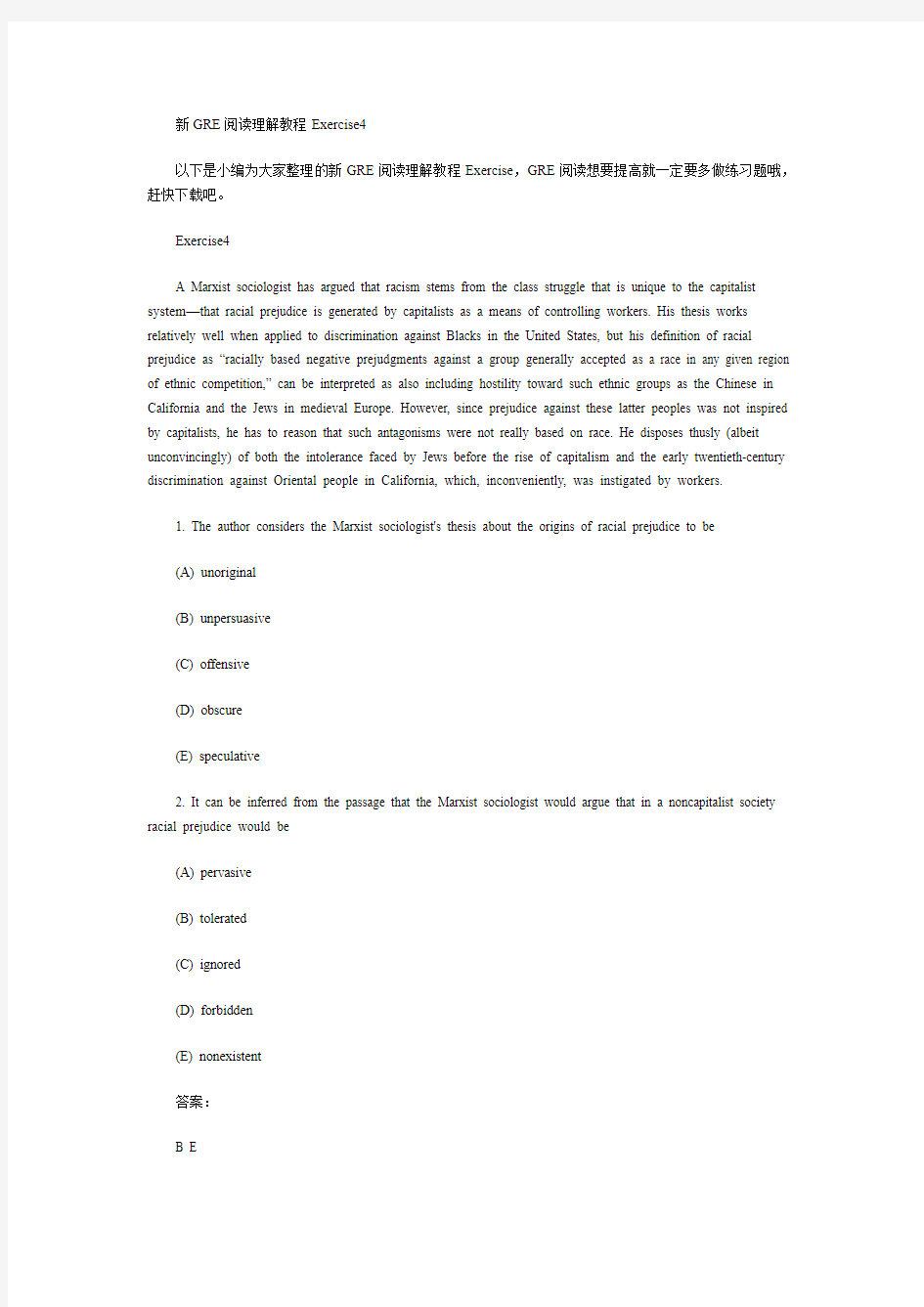新GRE阅读理解教程Exercise4


新GRE阅读理解教程Exercise4
以下是小编为大家整理的新GRE阅读理解教程Exercise,GRE阅读想要提高就一定要多做练习题哦,赶快下载吧。
Exercise4
A Marxist sociologist has argued that racism stems from the class struggle that is unique to the capitalist system—that racial prejudice is generated by capitalists as a means of controlling workers. His thesis works relatively well when applied to discrimination against Blacks in the United States, but his definition of racial prejudice as “racially based negative prejudgments against a group generally accepted a s a race in any given region of ethnic competition,” can be interpreted as also including hostility toward such ethnic groups as the Chinese in California and the Jews in medieval Europe. However, since prejudice against these latter peoples was not inspired by capitalists, he has to reason that such antagonisms were not really based on race. He disposes thusly (albeit unconvincingly) of both the intolerance faced by Jews before the rise of capitalism and the early twentieth-century discrimination against Oriental people in California, which, inconveniently, was instigated by workers.
1. The author considers the Marxist sociologist's thesis about the origins of racial prejudice to be
(A) unoriginal
(B) unpersuasive
(C) offensive
(D) obscure
(E) speculative
2. It can be inferred from the passage that the Marxist sociologist would argue that in a noncapitalist society racial prejudice would be
(A) pervasive
(B) tolerated
(C) ignored
(D) forbidden
(E) nonexistent
答案:
B E
